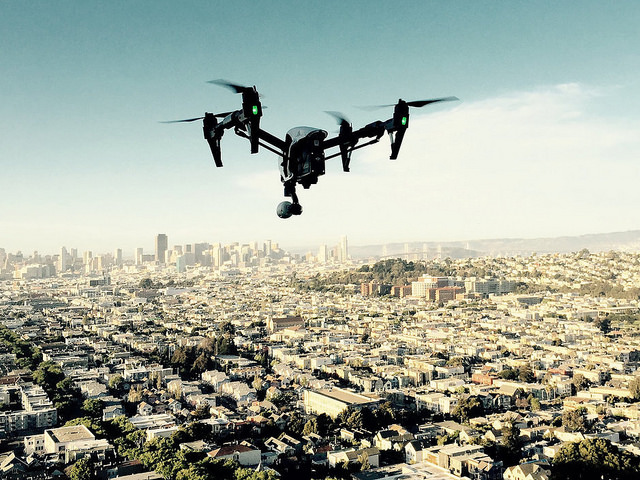By Dieter Zinnbauer & Hans Krause Hansen.
Few statist policy blueprints on matters pretty technical have captured our collective imagination as has the Chinese Social Credit System (SCS). Announced by China’s State Council on June 14, 2014, and building on experimentation with related mechanisms since the early 2000s, it sets out a hugely ambitious effort, officially described to instil societal trust, integrity and cohesion in a highly complex society. To get there it seeks to combine cutting-edge technology and vast amounts of data to create incredibly granular behavioural profiles of both companies and individuals. Good and bad behaviours are meant to be recorded in and through elaborate rating systems and blacklists, and made public on digital platforms. The expectation is that punishments and rewards will deter deviance and incentivise good conduct in close to any sphere of life.
With the West in the mirror
After years of relative in-attention, the SCS has loudly burst onto the Western media landscape. Here, it is typically described in Orwellian terms as a totalitarian system of surveillance and control. On closer inspection, the SCS is in fact embryonic, fragmentary and faced with enormous implementation challenges.
But the scale, scope and level of invasiveness associated with the data collection effort currently emerging in China should not look so shockingly unprecedented to Western publics once they begin to scrutinize their own backyards. Take the use of social media in the policing of protests as an example. Here the UK government engages in the analysis of big data to predict, pre-empt and respond in real time to a range of issues, including public dissent. Take information on someone’s physical whereabouts as another example. As it turns out the exact location of cell phone owners in 95% of the US is being tracked with the help of all major carriers in close to real time (ok, with a 15 seconds delay) and related data is being available to nudge people’s behaviour for a wide variety of purposes, e.g. by sending them last-minute campaign pitches when they wait in line outside a particular polling station or anti-abortion messages when they are found to linger outside health clinics that carry out these procedures or by sending political messages when they wait in line outside a particular polling station.
Or take the most popular new media companies. They are collecting extremely granular dockets of what their users do, say and who they socialise with on their own platforms. But less in the spotlight they also track users and non-users alike across millions of other websites and across the bulk of the most popular mobile applications, recording anything from detailed surfing behaviour down to the modes of movement – is the user currently cycling or on the train? What’s more, they increasingly merge theses profiles with billions of data points collected by other parties. One leading new media company claims to have access to information on 70% of all credit card purchases and thus approximating a rather totalitarian 360 degree, 24/7 view of user conduct, all the way to – no kidding – the barometric pressure of the users’ environment.
Public and private entanglements
A special matter of concern in the West relating to SCS is its fusion of socialist government and private sector capabilities, technical affordances and interests that make such a system feasible in the first place.
However, long gone in the West are the times when governments were the main purveyors and guardians of data about their citizens. Even the holy grail of state information prowess, the census is not immune to private sector resources and influences. The UK government for example is exploring ways to make its census more cost-effective with the help of other big data sources and acknowledges that this will also have to include privately-held ones.
And there is also a proximity of big tech and political actors on a much more fundamental level. Tech companies evolved into some of the most vocal and most prolific donors and lobbyists on the political scene. An entirely legitimate democratic engagement, but it raises questions about outsize influence given the scale of these efforts. Yet, much more unnerving, the leading social media and tech companies in the US seconded staff as pro-bono experts to become part of the support teams of most presidential candidates in the run up to the 2016 presidential elections, giving them unique insights and connections into the affairs of some of the leading politicians in the country.
Subtle social sorting and weak institutional safeguards
A factor that explains the extraordinary attention that the SCS has received might pertain to the breadth of sanctions and consequences that these early uses have already resulted in. Bad social credit makes it more difficult for Chinese citizens to travel, find a home or get a job. Unfortunately, this is nothing new and happens all over the world. Under the label of risk- management citizens whose criminal record or financial credit history contains some irregularities have long been subjected to inferior treatment when renting a home, looking for a job or seeking insurance.
In principle, the protection of individual rights and limits on state over-reach and surveillance in most western countries relies on a host of elaborate institutional safeguards, checks and balances. While some of the egregious examples referenced above have actually been remedied when they were exposed, thus attesting to some degree of efficacy of legal and broader societal protections, other incidences have not been resolved and are somehow even seen as acceptable.
So shifting some of the attention and moral outrage that is being directed towards the Chinese SCS back to the home turf, and to investigate what troubling data practices and regulatory gaps that are germinating over here is more than warranted. In the wake of the Facebook and Cambridge Analytica scandals this has begun to happen and more commentators are noting the troublesome parallels between Chinese SCS and emergent data surveillance and discrimination issues in the West.
Enter the urgent business of business
And this is where business and its social responsibility comes in. Because one of the fundamental differences between the SCS and many issues in the West is that the disciplinary power, control functions and discriminatory implications of big data-driven social scoring are not primarily organised and instrumentalised through government, but deployed by the private sector and working their way into everyday lives.
Egged on by a growing populist Tech-lash, a whirlwind of new regulatory efforts and undoubtedly also in many cases by a deeper sense for doing no harm, the new tech companies have begun to take note, moving from denial to a gradual re-examination of some of their working principles, practices and normative anchoring.
Yet, the proof is still in the pudding whether this is a substantive change of minds and hearts. The Performance of the new tech sector on some standard measures of corporate integrity and transparency is still mediocre and lagging many other established industries.
The ways to a much more comprehensive, proactive and transformational integration of corporate social responsibilities into the strategy and practice of tech will have to coalesce around a broad band of issues, ranging from responsible stewardship of data, platform power and emergent artificial intelligence capabilities to bread and butter CSR issues such as responsible corporate political activity and supply chain and subsidiary integrity.
Think tanks and tech activists are putting forward a sprawling pool of ideas and initiatives from data collaboratives or privacy by design standards to high-profile research endeavours into artificial intelligence ethics. Meanwhile European regulators are putting into force trailblazing rules as we write this column.
But a big tech embrace of a substantive and comprehensive notion of corporate social responsibility is urgently required to stave off the threat of an even more populist, illiberal, unequal, misogynistic and fragile future in which the tech industry is more part of the problem than a solution to it.
Dieter Zinnbauer is Governing Responsible Business Research Fellow at Copenhagen Business School in the Department of Management, Society and Communication.
Hans Krause Hansen is Professor at the Department of Management, Society and Communication at Copenhagen Business School. He teaches and researches about various aspects of public and private governance, including corruption, anti-corruption and transparency regimes in the global North and South.

